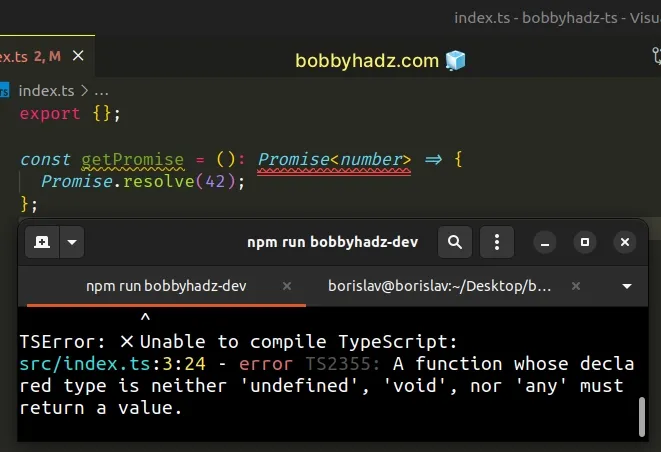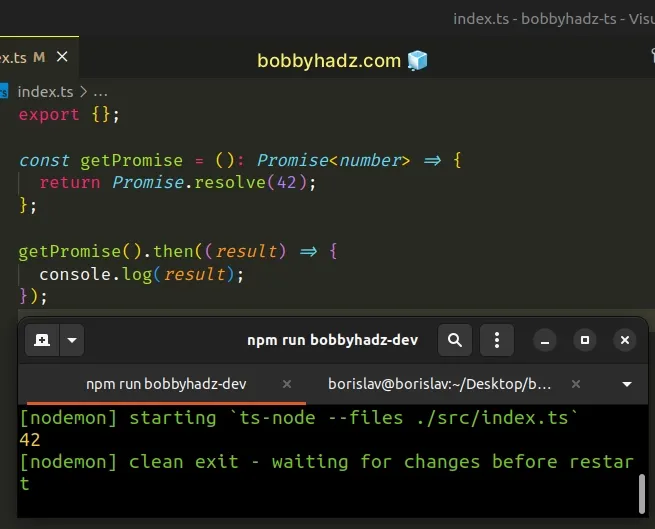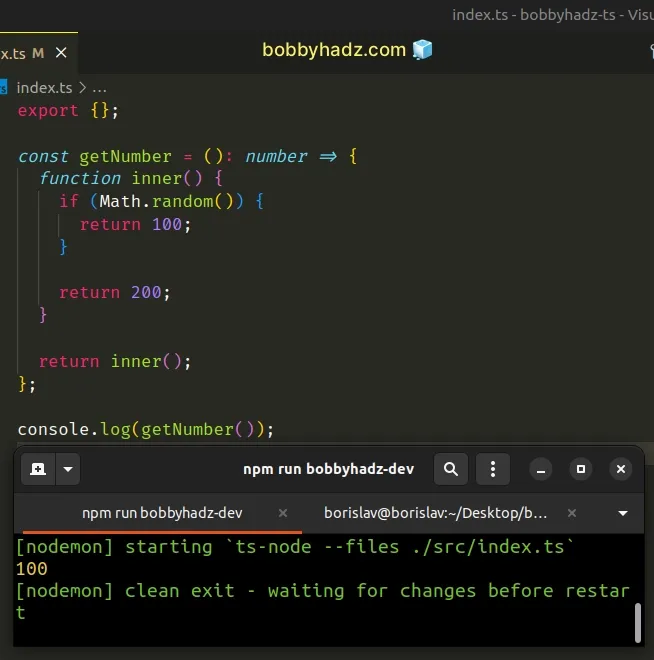A function whose declared type is neither void nor any (TS)
Last updated: Feb 27, 2024
Reading time·2 min

# A function whose declared type is neither void nor any (TS)
The "A function whose declared type is neither void nor any must return a value" error occurs when we explicitly set the return type of a function but the function doesn't return a value.
To solve the error, make sure to return a value from the function or remove the return type.
Here is an example of how the error occurs.
// ⛔️ Error: A function whose declared type is // neither 'void' nor 'any' must return a value.ts(2355) const getPromise = (): Promise<number> => { Promise.resolve(42); };

We set the return type of the getPromise function to be Promise<number> but
we don't return a value from the function.
undefined.# Return a value that matches the specified type
To solve the error, return a value that matches the return type of the function.
const getPromise = (): Promise<number> => { return Promise.resolve(42); };

If your function doesn't need to return anything, you can simply remove the function's return type.
// 👇️ const getPromise: () => void const getPromise = () => { Promise.resolve(42); };
Now the function has a return type of void, which represents the return type of functions that don't return a value.
# Dealing with complex functions with nested conditions
Sometimes you might get this error when you have a complex function with nested conditions and callbacks.
// ⛔️ Error: A function whose declared type is // neither 'void' nor 'any' must return a value.ts(2355) const getNumber = (): number => { function inner() { if (Math.random()) { return 100; } return 200; } inner(); };
The error occurs because we
set the function's return type to
be number but the function doesn't return a value.
The inner function returns a value, however, getNumber does not.
The inner() function in the example returns a number but if you want to return
the number from the outer function, use an
explicit return statement.
// ✅ OK now const getNumber = (): number => { function inner() { if (Math.random()) { return 100; } return 200; } return inner(); };

Now we explicitly return the return value of the inner function.
We had to do this because you only return a value for the function in whose
scope you've used the return statement (or the implicit arrow function
return).
# Additional Resources
You can learn more about the related topics by checking out the following tutorials:

